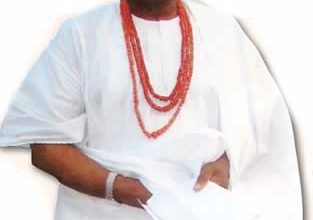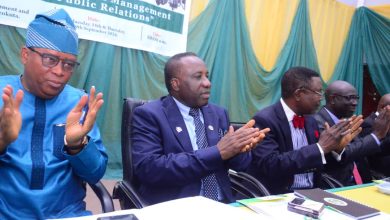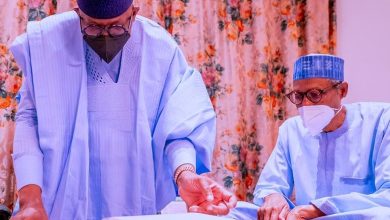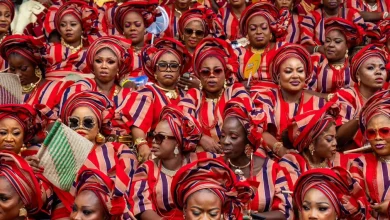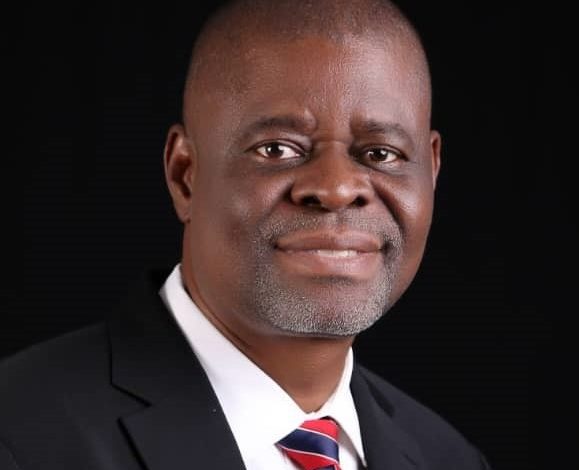
National Balance: Infrastructure, Institutional Capacity and Diversity as Tools for Building Blocs and Good Governance in Nigeria
For the records: Keynote address delivered by By Otive Igbuzor, PhD, at the 6th anniversary lecture of Penspushing Media at Olusegun Obasanjo Presidential Library, Abeokuta, Ogun State on 25th July 2024.
Protocols
- INTRODUCTION
National balance is necessary for nation building, sustainable development and good governance in any country. In Nigeria, a multi-cultural, multi-religious and diverse society, achieving a balanced approach to development involves strengthening infrastructure, enhancing institutional capacity and embracing diversity. These elements are critical building blocks for nation building and fostering inclusive growth, stability and elective governance.
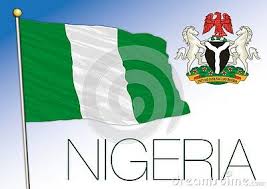
In this keynote address, we explore the roles of infrastructure, institutional capacity and diversity in promoting national balance and good governance in Nigeria. But first, we explore the concept of nation building.
- NATION BUILDING
Every nation is born through a process and require building through governance. Development theorists and practitioners are agreed that partnership among government, private sector and civil society is the most eective way to achieve sustainable economic and social benefits and achieve the sustainable development goals. ¹ Governance through the government, private sector and civil society can contribute to nation building.
A nation has been defined as a community of people formed on the basis of a combination of shared features such as language, history, ethnicity, culture and/or society. A nation state is a territorially bounded sovereign polity that has a defined territory and the right to govern themselves. Most nations in the world today came into being after struggle for independence from other people that conquered them or occupied their territories. This is why nations require building after birth.
The concept of nation building has attracted the attention of Political Scientists especially from the 1950s. It is primarily used to describe the processes of national integration and consolidation that lead up to the establishment of the modern nation state as distinct from various form of traditional states such as feudal states, church
³Nation building can therefore be likened to the construction of a building requiring the existence of consciously acting agents such as architects, engineers, carpenters etc. Some scholars have contended that nation building is a product of imagination requiring invention and fabrication. From the above, it is clear that nation building involves complex issues of integration, culture, ethnic and religious diversity, political and social engineering and capacity of the state to promote development and deliver services to the people.
All over the world, there are challenges of nation building resulting in a situation where some countries are rich, and others are poor. There have been various studies on what make some countries rich and others poor; and why some countries are making progress while others are declining and failing to deliver services to citizens.
Some scholars have argued that the reasons cannot be located in climate, geography, culture or ignorance of leaders. They posit that nations fail because their extractive political and economic institutions do not create incentives needed for people to save, invest and innovate but that the institutions are run by elite groups who are exploiting the resources for their own use, leaving little to the population at large.
It must be pointed out that nation building is not just about building infrastructure roads, buildings, bridges and flyovers as some politicians will want us to believe. This is why some scholars talk about holistic development which is a shift from focus on economic growth and Gross Domestic Product (GDP) to well-being. The idea is to harmoniously advance the well-being of both people and the planet. Other scholars have developed what is called Gross National Happiness with nine pillars: health; education; living standards; psychological well-being; time use; ecological diversity and resilience; community vitality; cultural diversity and resilience; and good governance
- THE CHALLENGE OF NIGERIA
There are debates about whether Nigeria is a nation or not given the basic definition and characteristics of a nation. Some contend that Nigeria is not yet united by language, religion, culture or a common national story. But there is no doubt that Nigeria is a nation in process of being built. The building of the Nigerian nation has been hampered by challenges of development. Scholars have identified the challenges to include among other things poor leadership; bad followership; poor for development; lack of capable and eective state and bureaucracy; lack of focus on sectors that will improve the condition of living of citizens such as education, health, agriculture and the building of infrastructure; corruption; undeveloped, irresponsible and parasitic private sector; weak civil society; emasculated labour and student movement and poor execution of policies and programmes.
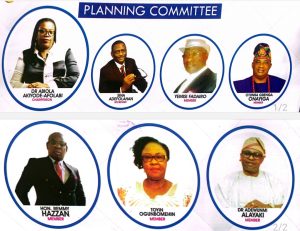
In any case, Nigeria as a country has been battered and urgently needs rebirth and rebuilding. Nigeria is ranked 163 in the United Nations Human Development Index (HDI) out of 191 countries in 2021. Nigeria life expectancy is 52.7 years in 2021 (compare with 64.38 years in South Africa, 72.22 years in Egypt and 87.57 years in Japan). According to UNICEF, Nigeria has 18.5 million out of school children, the highest in the world. The World’s Economist Intelligence Unit report which ranks the best and worst cities to live in the world indicated that Lagos in Nigeria is the third worst city to live in the World. The other cities are Damascus, Syria (1); Tripoli, Libya
(2); Dhaka, Bangladesh (4); Port Moresby, Papua New Guinea (5); Algiers, Algeria (6); Karachi, Pakistan (6); Harare, Zimbabwe (8) and Doula, Cameroun (9). Poverty rate in Nigeria increased from 15 percent in 1960 to 28.1 percent in 1980 to 69.2 percent in 1997 to about 50 percent currently hosting the largest number of poor people in the world.
It is instructive to note that by 2014, Nigeria ranked third in hosting the largest number of poor people in the world after India (first position) and China (second position).But by 2018, Nigeria was declared as the world poverty capital with around 87 million people living in extreme poverty compared with India’s 73 million according to the World Poverty Clock. It is important to note that the population of Nigeria in 2018 was estimated to be about 195.9 million which is about 15 percent of the population of India (1.353 billion) and 14 percent of China (1.393 billion), yet it hosts the largest number of poor people in the world.
The change was partly as a result of social protection policies implemented by China and India combined with enlightened leadership and pressure from below. According to the McKinsey Global Report, 2018, China lifted 713 million people and India 170 million people out of poverty between 1990 and 2013. They achieved this feat through inclusive, pro- poor growth; fiscal policies for wealth redistribution; employment generation; public service provision and social protection. All of these underscores the importance of leadership in nation building and national rebirth.
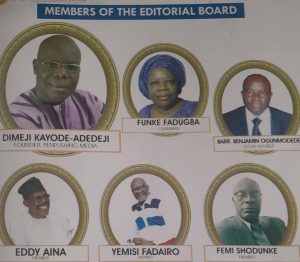
INFRASTRUCTURE DEVELOPMENT
Infrastructure is the backbone of any country’s economy. Infrastructure are basic essential facilities and services that should be put in place for development. The development of a nation’s infrastructure is critical to the growth and development of the country. The infrastructure sector is made up of electricity, roads, telecommunications, railways, irrigation, water supply and sanitation, ports and airports, storing facilities, and oil and gas pipelines. It has been shown that economic development can be facilitated and accelerated by the presence of infrastructure. In other words, no nation can achieve any meaningful development without infrastructure.
There is no doubt that adequate stock and quality infrastructure is important for every country. Infrastructure stimulates economic growth by improving transportation, increasing productivity and attracting investments. Adequate infrastructure improves living standards by providing access to essential services such as healthcare, education, electricity, telephone services and clean water.
Reliable infrastructure fosters political stability by enhancing government legitimacy and reducing agitation. There is therefore the need for ensuring public infrastructures that are well protected, managed and maintained. Various attempts have been made to improve the infrastructure in Nigeria including Public-Private Partnership (PPP); Presidential Infrastructure Development Fund (PIDF) established in February, 2018; support from development partners and adoption and implementation of infrastructure master plan. The National Integrated Infrastructure Master Plan was adopted in 2012 and revised in 2020 to improve the quality and stock of Nigeria’s infrastructure (2020-2043). The plan envisages total infrastructure investment of US $2.3 trillion with the government providing 44 percent and the private sector providing 56 percent. The plan outlines the required short to medium term measures needed to ensure eective implementation of the plan including strengthening the legal framework to allow for private participation in infrastructure investment; strengthening the infrastructure institutions; enhancing financing for priority projects and launching a broad communication eort to reach all priority stakeholders.
Unfortunately, the state of infrastructure in Nigeria remain lamentably poor. Studies show clearly that the various infrastructures in Nigeria are in a deplorable state and eorts at building modern infrastructure are still very insignificant. Nigeria was ranked 24th out of 54 countries in the Africa

Infrastructure Development Index (AIDI).
There are several factors responsible for the poor state of infrastructure in Nigeria. First is the dearth of visionary leadership with foresight. Visionary leadership will provide the strategic direction, resource mobilisation, vision and foresight for delivery of infrastructure. Under Lee Kuan Yew’s leadership, Singapore transformed from a third world to a first world country. Some key infrastructure projects included the creation of world class ports, the Changi airport and an eicient public transportation system. Sheikh Mohammed bin Rashid Al Maktoum spearheaded the transformation of Dubai from desert to a major global city. Projects like the Burj Khalifa, Palm Jumeirah and the Dubai Metro are some of the projects birthed by his visionary approach. During the great depression in the United States, Roosevelt initiated the New Deal which included significant infrastructure projects like the Hoover Dam and the Tennessee valley Authority. The second reason is poor execution of plans for development of infrastructure and lack of maintenance culture.
There is lack of adherence to project management principles in the conception, design and execution of infrastructure projects in Nigeria. The third reason is insufficient funds to build the required infrastructure. The amount of money required to raise the infrastructure stock in Nigeria is huge. According to the 2020 National Integrated Infrastructure Master Plan, Nigeria requires between 2020 and 2043, total infrastructure investments estimated at US$2.3 trillion to raise its infrastructure stock to the international benchmark of 70 percent of Gross Domestic Product (GDP). Meanwhile, Nigeria has a revenue problem. There is no sufficient revenue in Nigeria to meet its infrastructure needs. Nigeria is not collecting sufficient revenue relevant to its size, population and resources.
Nigeria has one of the lowest tax-to-GDP ratios in the world hovering around 6-7 percent significantly lower than the average for sub-Saharan Africa of 16.5 percent. Nigeria has a smaller national budget than Algeria, Angola, Egypt, Libya, Morocco and South Africa. The population of Nigeria is more than all these countries. While Nigeria’s 2019 budget amounts to only $29 billion, South Africa with a population almost four times smaller had a budget of $130 billion and Egypt with about half of the population of Nigeria had a budget of $90 billion.
The fourth reason is the unusually high cost of contracts in Nigeria. Studies have shown that the costs of executing construction contracts in Nigeria are extremely high and Nigeria pays times-two more than any other country in the world particularly her immediate African neighbours for implementing government construction projects. For instance, thirty billion naira was used to construct 10.2 kilometre phase 2 glory drive road in Yenagoa, Bayelsa State translating to about three billion naira per kilometre. In fact, opposition parties in the state claimed that it was actually “for the rehabilitation of the road that had been substantially finished by the previous administrations in Bayelsa State”. Similarly, the construction of the Lagos- Calabar coastal highway is estimated to cost N4 billion per kilometre.
Finally, is corruption. This does not need any further elaboration. The Centre for Fiscal Transparency and Integrity has shown through its work that there have been 614 probes on grand corruption since 1999 and only three have been concluded in terms of having a report.

- INSTITUTIONAL CAPACITY
Institutional capacity refers to the ability of governmental institutions to effectively formulate and implement policies and deliver public services. Strong institutions are fundamental to good governance and sustainable development. Scholars have documented that since the late 1950s and 1960s, the public sector in most African states has generally been regarded as pivotal to promoting socio-economic development. However, the public sector was not able to perform effectively because of several factors including accumulation of excessive power, lack of accountability and representation, indifference towards public needs and demands, critical secrecy and inaccessibility and role in depoliticizing the public sphere. This ineffectiveness and the economic crisis of the late 1970s and 1980s as well as the ascendancy of neo-liberalism led to the move for redefinition of the role of the state or public sector. All these led to the need for public sector reform in both developed and developing countries.
It has been argued that public sector reform in developed countries such as the United States of America, the United Kingdom, Canada and Australia have shown that changes in political, social, economic and administrative environments such as economic and fiscal crises of the state, the influence of neo-liberal ideas and development in ICT have promoted and driven radical changes in public administration and management systems with emphasis on electiveness, efficiency, economy and value for money. But in Africa and other developing countries, the need for public sector reform has been prompted largely by worldwide decline in public finances and the need “to get more for less
Many developing countries are beset with a lot of developmental challenges including hunger, poverty, insecurity, lack of education, poor health and short life expectancy. There is a consensus among scholars and development practitioners that accountable governance and effective public sector institutions are key to dealing with the challenges of development. This is because the developmental problems are as a result of political and institutional failings. The policies and institutional arrangements are ineffective and not responsive to the needs of the people necessitating the need for institutional reform.
There is a strong consensus around the role and significance of effective, accountable and inclusive institutions in promoting sustainable and equitable development. Effective, accountable and inclusive institutions are critical to achieving sustainable development goals (SDGs) as recognised by SDG 16 and the 2030 Agenda for Sustainable Development. Institutional reform is therefore imperative for the development of any country. Institutional reform is about making changes to institutions to improve the quality-of-service delivery, enhance social responsibilities and ensure broad participation of citizens. The institutional reform process is an iterative process of experimentation, learning and adaptation (not as singular champions commit to pro-designed reform models). Each step of the reform allows reformers to learn on how to solve the problem, build political support for the change process as they advocate and build new capacities.
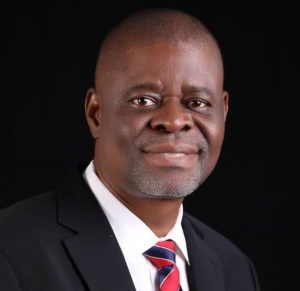
As noted above, development theory and practice recognise the place of effective, accountable and inclusive institutions at all levels in contributing to citizens wellbeing. This is because weak institutions undermine countries prospects for growth.
Some scholars have conceptualised the three main features of public sector reform, namely recalibration of the role of the state, modernisation of public management to improve performance and improving service delivery. The World Bank has delineated the three drivers of Public Sector Reform:
- Internal rules and restraints- for example, internal accounting and auditing systems, independence of the judiciary and the Central Bank, civil service and budgeting rules, and rules governing ombudsmen and other internal watchdog bodies (which normally reports to Parliament)
- “Voice” and partnership- for example decentralisation to empower communities, service delivery surveys to solicit client feedback, and “notice and comment” regulatory rule meeting and
- Competition-for example, competitive social service delivery, private participation in infrastructure, alternative dispute resolution mechanisms, and privatisation of certain market driven activities. These may involve a fundamental rethinking of the role of the state, often a key element of reform.
The Commonwealth has adopted key principles of Public Sector reforms which include:
- A new pragmatic and results oriented framework.
- Clarification of objectives and administrative structures
iii. Intelligent political strategies and engagement
- Goal oriented competencies and skills development
- Experimentation and innovation
- Professionalism and improved morale
vii. Code of conduct for public sector ethics
viii. Effective and pragmatic anti-corruption strategies
- Effective Public Finance Management
There is consensus among practitioners and scholars that to build effective,
accountable and inclusive institutions at all levels will require:
- a) Substantially reducing corruption and bribery at all levels
- b) Developing eective, accountable and transparent institutions at all levels
- c) Ensuring responsive, inclusive, participatory and representative decision making at all levels
- d) Ensuring Public access to information and protecting fundamental freedoms in accordance with national legislation and international; agreements. It has been documented that for reform to be eective the following are necessary:
- The leadership of the country must be committed
- There must be a thorough understanding of what exists on the ground and emphasis on “good fit” rather than one size fits all notion or the notion of best practice.
iii. Relevant policies that are tailored to the country’s conditions and
- Development of skills to enhance responsibility, accountability and quality
assurance.
Nigeria has been involved in the reform of public institutions since independence in 1960. A listing of some of the initiatives include:
- The Morgan Commission of 1963 to review the wages, salaries and conditions of service of junior employees in the public and private sectors.
- The Elwood Grading Team of 1966 to determine appropriate grading and how to achieve universality in the salaries of employees.
- The Adebo Salaries and Wages Review of 1970
- The Udoji Commission of 1974 to restructure the Public Service to make it more efficient and effective.
- The 1988 Civil Service Reforms from the Dotun Philips Study Team report to make the civil service result oriented and efficient.
- The Ayida Review Panel of 1994 that returned the oice of Permanent Secretary.
On return to civil rule in 1999, the state of public institutions in Nigeria was very poor which made the incoming President Olusegun Obasanjo to lament at his inauguration speech:
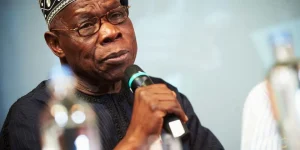
…Instead of progress and development which we are entitled to expect from those who governed us, we experienced in the last decade and a half, and particularly in the last regime but one, persistent deterioration in the quality of our governance, leading to inability and weakening of all public institutions…NEPA, NITEL, Roads and Railways, Education, Housing and other social institutions were allowed to decay and collapse.
As a result, there has been several reform initiatives since return to civil rule in 1999.The initiatives include:
- Pension Reform
- Restructuring and Repositioning of Ministries including establishment of
Bureau of Public Sector Reforms (BPSR)
- Monetisation Policy
- Downsizing in the Public Sector
- Financial Regulations and Anti-Corruption Policy including establishment of
ICPC and EFCC
- Service delivery reform including the establishment of SERVICOM
- Employment Mobility Policy to foster the professional development of civil
servants through career progression and deployment that engenders
creativity and motivate oicers to render service with competence, objectivity
and integrity.
- Integrated Payroll and Personnel Information System (IPPIS)
- National Strategy for Public Service Reforms to improve performance of the Public Service with emphasis on critical institutional changes, restoring professionalism and client focus and delivering effective services by 2017, transforming the public service into a value based, strong and well performing institution by 2020 and attaining world class levels of service delivery in the public service by 2025.
- Treasury Single Account (TSA)
A recent assessment of Public Sector reforms in Nigeria since independence concluded that Public Sector reforms in Nigeria have largely failed to bring about the desired reinvention of the public service. It concluded that Public Sector reforms in post-independence Nigeria have been mixed ranging from poor to mediocre. It is important to point out that the unfinished nature of public sector reform is a global one. All over the world, there are challenges of public administration requiring the need for constant reform and continuous improvement. The need for public administration reform is widespread across the world such that the United Nations Development project (UNDP) supports 380 projects in 112 countries covering various aspects of public administration reform.
Indeed, reform of public institutions in Nigeria is an unfinished business. It is well documented that from 1999-2019, Nigeria’s experience has been marked by increased poverty, inequality, unemployment, underemployment, insecurity, ethnoreligious divisions, increased corruption and continued dependence on oil as the major source of government revenue and foreign exchange. In fact, human development has been on the decline in the country.
- EMBRACING DIVERSITY
Nigeria is a diverse country which is evident in its ethnic composition, languages, religious affiliations and cultural differences. Diversity presents both challenges and opportunities. The challenges of diversity are exaggerated if not properly managed. The challenges include ethnic tensions and conflicts, religious differences and conflicts, political instability especially when the political elite manipulates the ethnic and religious differences for their political advancement. However, when diversity is embraced and properly managed with fairness, equity and justice, there are a lot of benefits. Diverse teams have consistently proven to be more creative and innovative because they encompass a broad range of perspectives, background and experiences which in turn lead to better ideas. Secondly, diversity brings about competitive advantage (greater speed, lower cost, higher quality and innovation) and can result in improved knowledge, team dynamics, talent attraction and retention, reputation and recognition. Furthermore, embracing and managing diversity promotes social cohesion by fostering mutual and understanding among different groups. Social cohesion is the glue that holds communities together. It includes various elements such as trust, shared values and social integration which contribute to a sense of belonging and solidarity among community members. Finally, it has been proven that nations that embrace diversity with proper management are better positioned in a globalised world. In the corporate world and non-profit sector, the best practice is to define organisational policies and practices aimed at recruiting, retaining and managing employees of diverse backgrounds and identities and creating a culture in which everybody is equally enabled to perform and achieve organizational objectives and personal development.
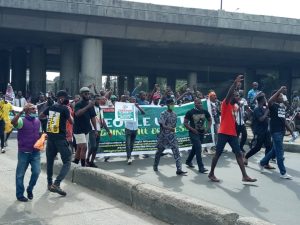
Recognising the importance of diversity, many countries across the world have developed strategies to manage their diversity and indeed increase the diversity of their countries. Canada has a long-standing policy of promoting diversity and is a desirable destination for immigrants today leading to a diverse work force that drives innovation and economic growth. Singapore government actively manages ethnic diversity policies that promote racial harmony and integration. A harmonious multiethnic society underpins Singapore’s economic success today. The United States of America emphasizes equal opportunity through anti-discriminatory laws and affirmative action policies and the country benefits from a diverse population in spite of recent attempts by White Supremacists to reverse the trend. Silicon Valley for example thrives on its diverse talent pool. Australia’s multicultural policy supports the integration of immigrants while respecting their cultural identities.
Today, Australia attracts global talent and investments. South Africa’s post-Apartheid focused on reconciliation and promotion of opportunities for the blacks through the Black Economic Empowerment (BEE). Post-Genocide Rwanda has become a model of reconciliation and inclusive development. There is promotion of national identity above ethnic identity, and the government actively promotes unity and reconciliation through various programmes including education, community dialogue and peace building initiatives.
What we need in Nigeria is to first embrace our diversity and then manage our diversity so as to reap the benefits. What we need in Nigeria is to create equal opportunities for all. It is not to use federalism and quota for favouritism and promotion of “village idiots and family imbeciles.” What we need in Nigeria is to promote a culture of respect and to respect the rights of people to be different in their political and religious views not religious tolerance.
CONCLUSION AND THE WAY FORWARD
National balance is imperative for nation building, sustainable development and good governance in Nigeria. This can be achieved through strengthening infrastructure, enhancing institutional capacity and embracing diversity. This has not happened in Nigeria because of lack of visionary political leadership. A visionary political leadership will put in place a comprehensive long-term strategy to develop infrastructure, build institutional capacity and manage diversity. A visionary leadership will arouse the people to mobilise the resources and ensure proper use of the resources to develop the country. A visionary leadership will address corruption in a holistic manner guided by legislative framework for transparent and accountable government; political will and commitment to fight corruption; comprehensive strategy that is systematic, comprehensive, consistent, focused, publicized, nonselective and non-partisan; protection of Whistle blowers; political reform to curb political corruption especially election rigging; reform of substantive programmes and administrative procedures; mobilisation for social re-orientation; independent media; adequate remuneration for workers to reflect the responsibilities of their post and a living wage; code of ethics for Political office holders, business people and CSOs; independent institutions especially electoral, human rights and gender commissions and a movement for anti-corruption. A visionary leadership will put in motion strategies and ideas to promote re-orientation, discipline, restructuring, constitutional amendment, inclusive governance, new security architecture and new ways of doing things. A visionary leader will lead the country to go back to the fundamentals of discipline, patriotism, identification, census, street address, merit, tax, Integrity, etc.

The challenge therefore is how do we produce a visionary political leadership for Nigeria? The first thing is that we must recognise that there is no lack of leadership in Nigeria. What we lack is political leadership. Nigerians are providing leadership across the world, and they are acknowledged globally to be doing well.
Amina Mohammed is providing excellent leadership as Deputy Secretary General of the United Nations. Dr. Ngozi Okonjo-Iweala is providing a well acknowledged leadership at the World Trade Organisation (WTO). Dr. Akinwumi Adesina is providing transformative leadership at the African Development Bank as President. Comrade Ayuba Wabba was President of the International Trade Union Confederation from
2018 to 2022 and discharged his leadership role creditably well. Dr. Osahon Enabulele, a past President of Nigeria Medical Association (NMA) has just concluded his tenure as President of World Medical Association. Alhaji Aliko Dangote is providing leadership in the business world. Even when the Nigeria Police Force (NPF) goes for international assignment, they come provide leadership and come back in flying colours.

Nigerians are providing leadership in academics, medicine, pharmacy, law, accounting, sports, music, creative arts and indeed in all facets of human endeavour. But we have allowed ourselves to be governed by the worst amongst us. In order to change this, the first step is to interrogate the political leadership recruitment process in Nigeria. We cannot continue to allow the worst amongst us to be our political leaders in all levels. The only way to counteract this is to participate actively in politics. We must jettison the notion that politics is dirty and stay away. Plato counsels us that “if you refuse to participate in politics, you will be governed by your inferiors.” Edmund Burke warned us that “for evil to triumph is for
good men to do nothing.” Frantz Fanon admonished us that “the future will have no pity for those men (and women) who, possessing the exceptional privilege of being able to speak the words of truth to their oppressors, have taken refuge in an attitude of passivity, of mute indifference, and sometimes of cold complicity.” Frantz Fanon was categorical when he stated that “every onlooker is either a coward or a traitor.”

The second thing is for all well-meaning people in Nigeria to get involved in building transformative leaders. Leadership has been recognised as one of the most important variables that affect the performance of any organisation, institution or nation. Study after study, superior financial and organisational performance, as well as other forms of success, have been linked to leadership. Scholars have opined that the success or failure of organisations and nations depends on leadership excellence and not managerial acumen. It has been documented that the progress, development and fortunes of many nations are tied to the type and quality of the political leadership that they have had and continue to have. In a recent survey of 1,767 experts across the world, 86 percent of the respondents agreed that the world is facing a leadership crisis. According to Myles Munroe, the world is filled with followers, supervisors and managers but very few leaders. Chinua Achebe argued that “the trouble with Nigeria is simply and squarely a failure of leadership. There is nothing basically wrong with the Nigerian Character. There is nothing wrong with the Nigerian land or climate or water or air or anything else. ”But scholars have documented that scourges of bad leadership and signs of darkened mood are everywhere in Nigeria. Despite the recognition that Leadership is crucial for the development of organisations and nations and that leaders can be trained, here are very few organisations especially in Africa dedicated to building transformative leadership. Myles Munroe put it aptly: There is leadership potential in every person. Despite this universal latent ability, very few individuals realise this power, and fewer still have responded effectively to the call. As a result, our nations, societies and communities are suffering from an astounding leadership void.
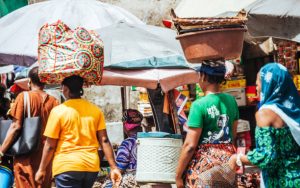
Therefore, one big idea that can push Nigeria and indeed Africa forward is to build transformative leadership. The third thing is to organise a movement for change. There is an elite capture of the state. This is not what can be corrected by a few people. What we need is a movement. We have always argued that change will happen in any society when the conditions are ripe. In our view, for change to occur in any society requires the presence of objective and subjective conditions. Objective conditions exist when situations are evidently abnormal with huge contradictions which can only be resolved by change. The subjective conditions are the organizational preparations required to bring about change. There is no doubt that the objective conditions for change have been existing in Nigeria for a very long time. There is high level of poverty in the midst of plenty. Corruption is widespread, endemic and stifling progress. The wealth of the country is concentrated in the hands of a few. There is social
disintegration with high levels of promiscuity and divorce. Rape is on the increase. There are several cases of incest. There is high level of greed, selfishness and nepotism. The state of affairs is not sustainable. The challenge has been the absence of the subjective conditions with the requisite organization and platform to mobilize for social change. The minimum programme for the movement should be proper governance of Nigeria to make things work. The movement should advocate for resetting the country and going back to the fundamentals to reduce selling of influence, nepotism and corruption.
The final thing is to form a developmentalist coalition of Nigerians across board to push for nation building, sustainable development and good governance. As Omano Edigheji has argued, throughout history, the ideology of development nationalism has been a major impetus for national development, especially in late developers (such as China, Malaysia, Mauritius, South Korea and Singapore) that wants to “catch-up”. For Nigeria, he argues that: Among other things, this calls for the creation of a developmentalist coalition that is made up of a few political elite, the top echelon of the bureaucracy and patriotic business elite. Given the diverse ethnoreligious composition of Nigeria, eorts should be made to ensure that the developmental coalition comprises of people from the various ethnic and religious groups. This could be the basis to build a truly united country, as a sure guarantee to overcoming the ethno-religious conflicts that have plagued the country. The developmental coalition should be an elite group united mainly by the need for Nigeria’s development, and consequently they have to be highly nationalistic and patriotic. In light of this, transforming the structure of the Nigerian economy, and consequently, enhancing its productive capacity should constitute the primary objective the developmentalist coalition. To this would require that promotion of industrial development should be accorded a national priority. A first step in this regard will be the formulation of an industrial policy, which among other things will identify industries for government support with clear targets, including technological upgrading, adaption and innovation, job creation and exports requirement. A patriotic nationalist developmentalist coalition with a shared vision for national development can counteract the elite capture that we are currently witnessing in Nigeria
Thank you for your attention.
Otive Igbuzor, PhD is the Founding Executive Director, African Centre for Leadership, Strategy and Development (Centre LSD)
FOOTNOTE: You want to share story with us? You want to advertise with us? You need publicity for product, or service, or event? Contact us on WhatsApp +2348073463653 or email penpushing@yahoo.com



